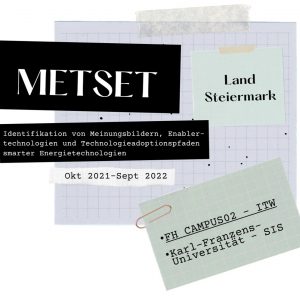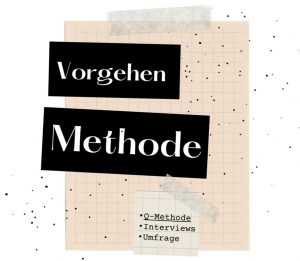
Identification of opinion leaders, enabler technologies and technology adoption paths for smart energy technologies
With the Green Deal, Europe aims to become the first climate-neutral continent by 2050, with the energy transition playing a major role. In order to establish a decentralized, secure energy system based on renewable energy sources, the Green Deal relies on the development of a fully integrated, networked and digitalized EU energy market. Intelligent technologies, so-called smart home applications, come into play at household level. In addition to smart entertainment, security and convenience applications, there are also targeted Smart energy technologies (SET) (e.g. smart meters, energy management systems (EMS), etc.) that enable energy efficiency, promote sector coupling (e.g. e-mobility), communicate with the energy system or enable the integration of renewable energies. SETs can contribute to the optimization, stability and increased resilience of the energy system by enabling components, grids and actors to interact intelligently with each other. The contribution that digitalization will ultimately make to the green transformation is still unclear in many respects. METSET focuses on 2 questions.
The prevailing opinion regarding SET determines the acceptance and willingness to use it at the level of individual households (micro level) and consequently the spread of the technologies at a macro level. In order to make a statement about the contribution of digitalization - i.e. specifically SET - to the green transformation, it is relevant to consider the Opinion about SET (i.e. attitudes, values, needs, etc.) of (potential) users.
What types of SET personas can be found?
With their decisions to buy and use SET, households act as active players (including prosumers) in the energy transition. The question remains as to which Importance of adopting SET in relation to other energy technologies and other smart technologies takes on. Does the acquisition of one technology influence the acquisition of another technology? Are there patterns in the temporal acquisition of technologies by households and, if so, what does such a technology adoption path (TAP) look like?
What role do SETs play in the technology adoption path of households?
A typification of SET users and insights into possible patterns in the purchase of smart (energy) technologies supports a Needs-oriented development and design of SET as part of the Service Engineerings. SET personas can give a clear picture of target groups, taking into account emotional and practical goals that are stable over time and provide a precise reference point at different stages of the design.
 In order to achieve the research objective, the METSET project proceeds as follows:
In order to achieve the research objective, the METSET project proceeds as follows:
Explorative qualitative research design:
Quantitative research design: Representative survey on the
Argumentative-deductive analysis to derive design measures for SET in the context of service engineering
Fördergeber: Land Steiermark, Green Transformation
Projektleitung: FH CAMPUS 02, IT & Wirtschaftsinformatik